Campus radio Live Radio Stations
Radio Stations
- bonn.fm

- camfm Cambridge University Student Radio
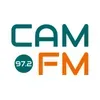
- Campus FM ToulouseCampus FM Toulouse
- Campusradio Karlsruhe

- CFMH "Local 107.3" Saint John, NB
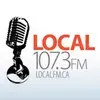
- CFML "Evolution 107.9" Burnaby, BC

- CHSR-FM 97.9

- CIOI 101.5 The Hawk FM (Hamilton)

- CJAM 99.1 FMCJAM 99.1 FM
- CKDU 88.1 DalhousieCKDU 88.1 Dalhousie
- CKDU 88.1 Dalhousie (96 kbs)CKDU 88.1 Dalhousie (96 kbs)
- CKHC 96.9 "Radio Humber" Humber College, Toronto, ON
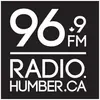
- CU Radio

- Fréquence Banane

- h2radio

- ORF Ö1 Campus

- ORF Ö1 CampusORF Ö1 Campus
- Radio Campus Amiens
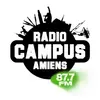
- Radio Campus LilleRadio Campus Lille
- Radio Campus Lille
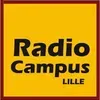
- Radio Campus Paris

- Radio Dijon Campus
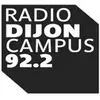
- Radio En ConstructionRadio En Construction
- Radio GrenouilleRadio Grenouille
- Radio Phénix

- Radio Q (Campusradio Münster)Radio Q (Campusradio Münster)
- Radio Radius (AAC)Radio Radius (AAC)
- Radio Radius (mp3)Radio Radius (mp3)
- Radio Radius (ogg)Radio Radius (ogg)
- Radio U - Radio Campus Brest

- Radio UAdeO (Los Mochis) - 89.3 FM - XHUDO-FM - Universidad Autónoma de Occidente - Los Mochis, Sinaloa

- Radio Universidad (UAA) (Aguascalientes) - 94.5 FM - XHUAA-FM - UAA (Universidad Autónoma de Aguascalientes) - Aguascalientes, AguascalientesRadio Universidad (UAA) (Aguascalientes) - 94.5 FM...
- Radio Universidad de Oaxaca (UABJO) (Oaxaca) - 1400 AM - XEUBJ-AM - UABJO (Universidad Autónoma Benito Juárez de Oaxaca) - Oaxaca, Oaxaca

- Studentenfunk (Universität Regensburg)

- Triquency (Hochschulradio TH OWL / Lemgo)Triquency (Hochschulradio TH OWL / Lemgo)
- UABC Radio (Tijuana) - 1630 AM - XEUT-AM - UABC (Universidad Autónoma de Baja California) - Tijuana, Baja California

- UMFM 101.5 (CJUM)

- WJSC 90.7 Johnson State College, VTWJSC 90.7 Johnson State College, VT
- WLRA 88.1 Lewis University, Lockport, ILWLRA 88.1 Lewis University, Lockport, IL
- WWEC 88.3 Elizabethtown College, PAWWEC 88.3 Elizabethtown College, PA
Choose a Genre
Campus Radio: A Vital Voice for Student Expression and Community Connection
Campus radio stations have long been a staple of university and college communities, serving as both a creative outlet and a source of entertainment and information. These student-run stations provide a unique platform for student expression, creativity, and engagement, allowing students to connect with their peers in ways that go beyond the classroom. From music to news to talk shows, campus radio stations offer an eclectic mix of programming that reflects the interests, concerns, and experiences of students.
A Platform for Independent Music
One of the key defining features of campus radio is its emphasis on local, independent, and up-and-coming music. Unlike commercial radio stations that typically focus on mainstream hits, campus radio stations are known for showcasing emerging artists and genres that may not have the same visibility in the commercial music industry. Whether it's indie rock, electronic music, hip hop, or experimental genres, campus radio gives exposure to a wide variety of music that resonates with student audiences.
For many emerging artists, campus radio can be a critical stepping stone in their journey to wider recognition. By providing airtime to local and independent talent, these stations become an incubator for new music, helping artists gain a fan base and increase their visibility. This makes campus radio a cultural force, helping shape the sound and direction of music scenes both locally and nationally.
A Hub for Campus News and Issues
Beyond music, campus radio stations are an essential source of news and information for the university community. These stations often feature student-produced news programs, talk shows, and interviews with campus leaders, faculty, and community members. Campus radio is able to offer a fresh perspective on campus events, politics, and issues that directly affect students. From discussions on student government decisions to coverage of protests or social movements, campus radio stations can provide vital, real-time updates on what's happening within the campus and beyond.
Because these stations are student-run, they can address topics that might be overlooked or underreported by larger, commercial media outlets. Issues like mental health, student activism, or campus diversity are often covered in ways that feel personal and authentic, giving students a sense of ownership over the content they consume.
Talk Shows That Reflect Student Life
In addition to music and news, campus radio is home to talk shows that delve into a wide range of topics relevant to students. These programs cover everything from student life, career advice, and personal development to social justice issues, relationships, and wellness. Talk shows can feature guest speakers, expert advice, or student-led discussions, fostering an inclusive and supportive environment for students to share ideas, experiences, and solutions to common problems.
These shows not only entertain but also educate, giving students a platform to engage in important conversations about topics they care about. Whether it's a mental health awareness program or a discussion about the best study habits, campus radio stations play a crucial role in helping students navigate their university experience.
Learning and Professional Development
For students involved in the production of campus radio, the experience offers invaluable opportunities for hands-on learning and skill development. Whether they're aspiring to work in media, journalism, or communication, students gain practical experience in radio production, broadcasting, scriptwriting, and on-air talent. The collaborative nature of campus radio also fosters teamwork, leadership, and problem-solving skills that are essential for any career path.
Furthermore, many students use their time at campus radio stations to build portfolios, create content for future job opportunities, or network with professionals in the media industry. Campus radio can often be a springboard for future careers, allowing students to gain practical experience in an environment where they can experiment, make mistakes, and grow.
Conclusion: The Heart of Student Life
Campus radio stations are an invaluable part of university culture. By giving students the chance to express themselves, share their music, and engage in discussions that matter to them, these stations help shape the student experience in meaningful ways. They provide a space for emerging artists to gain exposure, inform the campus community about current events, and create a sense of belonging for students from diverse backgrounds.
In short, campus radio is more than just a source of entertainment—it is a vital, dynamic platform for student voice, creativity, and activism. It reflects the diverse, ever-evolving needs of student communities, all while providing opportunities for learning, growth, and personal expression.
Campus radio stations have long been a staple of university and college communities, serving as both a creative outlet and a source of entertainment and information. These student-run stations provide a unique platform for student expression, creativity, and engagement, allowing students to connect with their peers in ways that go beyond the classroom. From music to news to talk shows, campus radio stations offer an eclectic mix of programming that reflects the interests, concerns, and experiences of students.
A Platform for Independent Music
One of the key defining features of campus radio is its emphasis on local, independent, and up-and-coming music. Unlike commercial radio stations that typically focus on mainstream hits, campus radio stations are known for showcasing emerging artists and genres that may not have the same visibility in the commercial music industry. Whether it's indie rock, electronic music, hip hop, or experimental genres, campus radio gives exposure to a wide variety of music that resonates with student audiences.
For many emerging artists, campus radio can be a critical stepping stone in their journey to wider recognition. By providing airtime to local and independent talent, these stations become an incubator for new music, helping artists gain a fan base and increase their visibility. This makes campus radio a cultural force, helping shape the sound and direction of music scenes both locally and nationally.
A Hub for Campus News and Issues
Beyond music, campus radio stations are an essential source of news and information for the university community. These stations often feature student-produced news programs, talk shows, and interviews with campus leaders, faculty, and community members. Campus radio is able to offer a fresh perspective on campus events, politics, and issues that directly affect students. From discussions on student government decisions to coverage of protests or social movements, campus radio stations can provide vital, real-time updates on what's happening within the campus and beyond.
Because these stations are student-run, they can address topics that might be overlooked or underreported by larger, commercial media outlets. Issues like mental health, student activism, or campus diversity are often covered in ways that feel personal and authentic, giving students a sense of ownership over the content they consume.
Talk Shows That Reflect Student Life
In addition to music and news, campus radio is home to talk shows that delve into a wide range of topics relevant to students. These programs cover everything from student life, career advice, and personal development to social justice issues, relationships, and wellness. Talk shows can feature guest speakers, expert advice, or student-led discussions, fostering an inclusive and supportive environment for students to share ideas, experiences, and solutions to common problems.
These shows not only entertain but also educate, giving students a platform to engage in important conversations about topics they care about. Whether it's a mental health awareness program or a discussion about the best study habits, campus radio stations play a crucial role in helping students navigate their university experience.
Learning and Professional Development
For students involved in the production of campus radio, the experience offers invaluable opportunities for hands-on learning and skill development. Whether they're aspiring to work in media, journalism, or communication, students gain practical experience in radio production, broadcasting, scriptwriting, and on-air talent. The collaborative nature of campus radio also fosters teamwork, leadership, and problem-solving skills that are essential for any career path.
Furthermore, many students use their time at campus radio stations to build portfolios, create content for future job opportunities, or network with professionals in the media industry. Campus radio can often be a springboard for future careers, allowing students to gain practical experience in an environment where they can experiment, make mistakes, and grow.
Conclusion: The Heart of Student Life
Campus radio stations are an invaluable part of university culture. By giving students the chance to express themselves, share their music, and engage in discussions that matter to them, these stations help shape the student experience in meaningful ways. They provide a space for emerging artists to gain exposure, inform the campus community about current events, and create a sense of belonging for students from diverse backgrounds.
In short, campus radio is more than just a source of entertainment—it is a vital, dynamic platform for student voice, creativity, and activism. It reflects the diverse, ever-evolving needs of student communities, all while providing opportunities for learning, growth, and personal expression.